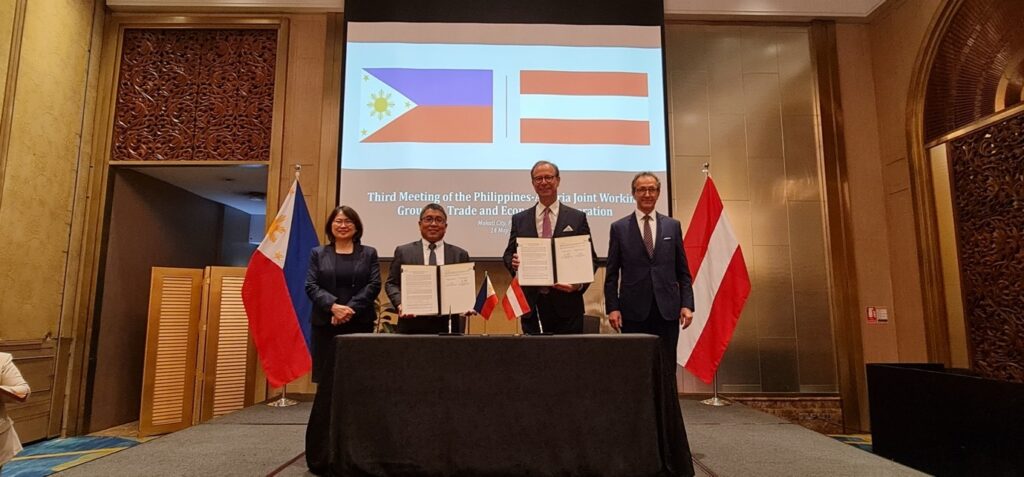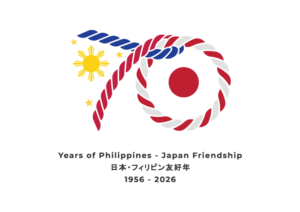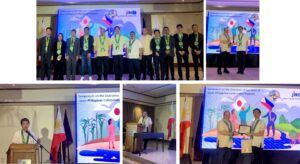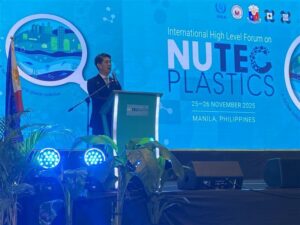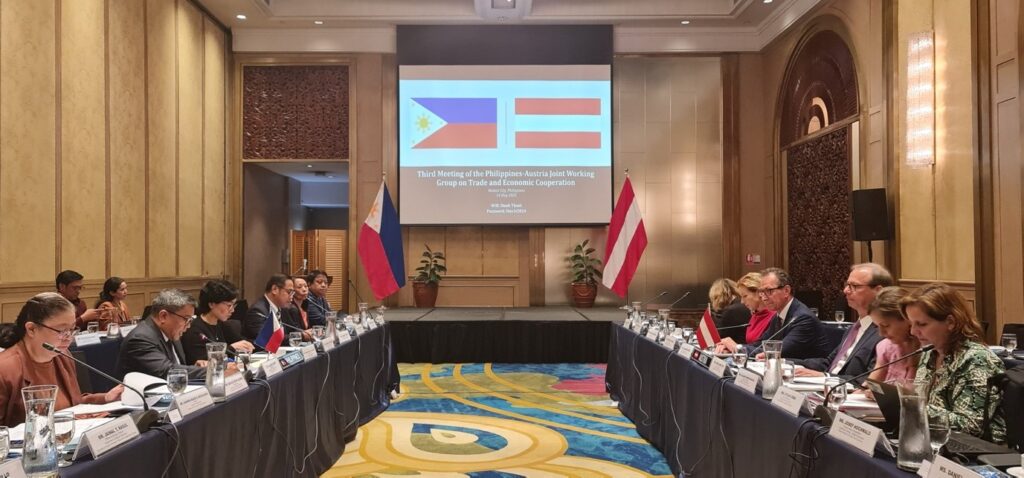
Department of Trade and Industry (DTI) Undersecretary Allan B. Gepty, along with other high-ranking government officials, engaged with Austrian delegates at the recent 3rd Meeting of the Philippines-Austria Joint Working Group on Trade and Economic Cooperation in Manila to discuss the expansion of their trade and economic relations.
The Joint Working Group exchanged information on trade and economic developments, including policy measures that enhance trade and investment relations.
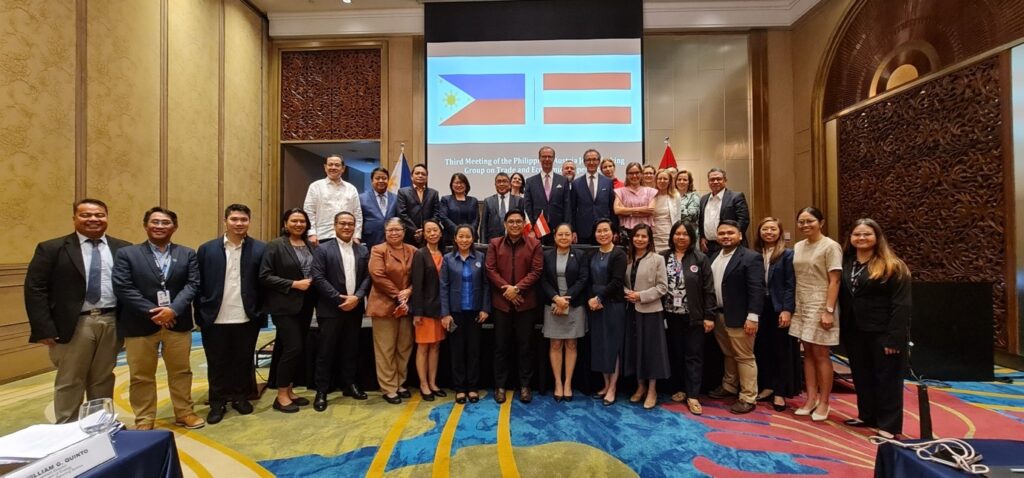
Participants from the Philippines included officials from the DTI and its attached agency, the Board of Investments, Department of Energy, Department of Finance, Department of Foreign Affairs, Department of Migrant Workers, Department of Transportation, Public-Private Partnership Center, and Technical Education and Skills Development Authority; while the Australian delegation, led by Federal Ministry of Labor and Economy Director General Georg Konetzky, included officials from the Federal Ministry of Labor and Economy, Federal Ministry for European and International Affairs, Austrian Federal Chamber of Commerce and the Austrian Business Agency.
Private sector representatives from the infrastructure, information technology-business process management (IT-BPM), and educational technologies also attended from both sides.
During the discussion, Undersecretary Gepty highlighted the resilience of the Philippines, noting it as one of the fastest growing economies in Southeast Asia with a growth rate of 5.7% in the first quarter of 2024, despite global economic challenges.
Both delegations highlighted the increasing total trade volume, which reached a record of USD350 million in 2023. Philippine exports to Austria amounted to EUR201 million with top export products such as integrated circuits, primary batteries, semiconductor devices, office machines, and pineapples. Meanwhile, imports totaled EUR149 million with integrated circuits, semiconductor devices, cigarette paper, medicaments, and AC generators as top import products.
Both also welcomed the forthcoming Philippines-European Union free trade agreement negotiations, which, among others, bode well for diversifying supply chains and export-import markets.
On investment opportunities, DTI Undersecretary Ceferino S. Rodolfo presented the Philippines’ aim to be a hub for smart and sustainable manufacturing and services by empowering the private sector through market-based tools.
He highlighted the country’s competitive advantages, including a young and talented workforce, rich natural resources, and strategic location, as key factors to accelerate growth in priority sectors such as renewable energy, data centers, infrastructure, green metals processing, high-tech agriculture, smart and high-tech light manufacturing, and semiconductors. Notably, these are the sectors in which Austria has built expertise.
In efforts to strengthen economic ties, both sides also exchanged views on potential cooperation in areas such as financing, infrastructure, green economy technologies, innovation and startups, IT-BPM, electric vehicles, electronics and semiconductors.
Furthermore, the Austrian delegation presented seven business memoranda from Austrian companies looking to intensify their engagement in the Philippines in the fields of energy (hydropower, biogas and natural gas), agriculture, digital education and training, vocational education and training, and bridge infrastructure.

